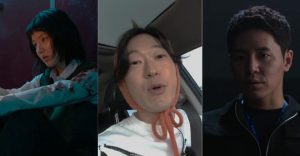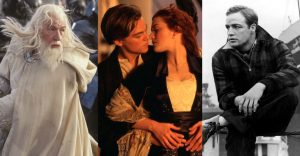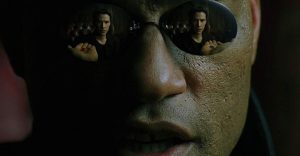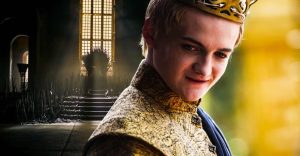The DCEU Multiverse Explained: Which Movies & Shows Are Canon

The multiverse of DC’s Extended Universe is now expanding to its movie side with Michael Keaton’s Batman reportedly appearing in The Flash – so, how will the DCEU multiverse work and which movies and TV shows are now canon? The DCEU has gone through a couple of changes since its beginning in 2013 with Zack Snyder’s Man of Steel, as its first projects didn’t perform as the studio expected.
Henry Cavill’s debut as Superman was followed by Batman v Superman: Dawn of Justice, which introduced Ben Affleck as the new Bruce Wayne/Batman. The DCEU then went on a slightly different path and brought a group of antiheroes to the big screen in David Ayer’s Suicide Squad, which also introduced a new Joker (Jared Leto). Patty Jenkins’ Wonder Woman kept DC’s movie universe afloat for a bit longer, but the underperformance of Justice League prompted Warner Bros to rethink its plans.
The DCEU is now going through a couple of changes by giving different adventures to previously introduced characters (such as Harley Quinn in Birds of Prey) and changing others completely, as is the case of Batman, now played by Robert Pattinson. However, the recent announcement of the potential return of Michael Keaton as Batman as part of the DCEU’s multiverse opens many doors for future movies and TV shows, giving this universe more freedom to tell different stories without the pressure of fitting into one timeline. Here’s how the DCEU multiverse will work and the movies and shows that are part of canon.
How The DCEU Multiverse Will Work

The concept of the multiverse is not new in the DCEU but it will now affect the movies as well, not just the TV shows from The CW’s Arrowverse. Contrary to its biggest competitor, the Marvel Cinematic Universe, which will see its Disney+ shows tying directly into upcoming movies, the DCEU’s connection between movies and TV shows is through the multiverse so both worlds can be kept separate to build their own timelines and arcs. The DCEU movies and the Arrowverse shows were finally linked during part 4 of “Crisis on Infinite Earths”, where Ezra Miller’s Barry Allen crossed paths with Grant Gustin’s version of the character, confirming that all these stories live within a multiverse.
Now, the multiverse hasn’t made an appearance in the DCEU’s movies, with characters from the same timelines and worlds teaming up (as they did in Justice League), but the addition of Keaton’s version of Batman welcomes a different timeline into the movies. Just like both Barry Allens did in “Crisis on Infinite Earths”, The Flash will be in charge of introducing the multiverse to the movie side of the DCEU. The Flash will follow the Flashpoint storyline, where Barry Allen goes back in time to save his mother and ends up creating an alternate universe, one where Bruce Wayne died and Thomas and Martha Wayne became Batman and the Joker, respectively. Instead of following that storyline closely, The Flash will explore an alternate universe where Keaton’s Bruce Wayne/Batman lives, allowing viewers to catch up with him 30 years after the events of Tim Burton’s Batman Returns.
Movies & TV Shows That Will Be DCEU Canon

Fortunately, the confirmation of a multiverse in the DCEU doesn’t mean a big shake-up in the titles that were already considered canon, instead only adding more to the list. All DCEU movies from Man of Steel up to Aquaman 2 (which is the last project on the list with a confirmed release date) are canon, with Matt Reeves’ The Batman possibly joining the fun as it would be much easier now to do so without having to reference other DCEU movies. All TV shows from Arrowverse are also part of the DCEU canon – that’s Arrow, The Flash, Supergirl, Legends of Tomorrow, Black Lightning, Batwoman, and the upcoming Superman & Lois.
The big additions to the list are Tim Burton’s Batman movies: 1989’s Batman and 1992’s Batman Returns. As for the movies that followed – Batman Forever and Batman & Robin, both directed by Joel Schumacher – and which saw Keaton being replaced by Val Kilmer and later by George Clooney, they will be reportedly retconned, as the plan for Keaton’s return is to “disregard the latter two entries entirely” and explore what his version of the Caped Crusader has been doing since Batman Returns.
DC Movie Future With The Multiverse Explained

The multiverse makes things a bit easier for the writers and directors that are part of the DCEU’s movie side, as there’s no longer pressure to fit into one single timeline and bring a story that won’t hurt previous movies. The best example is The Batman, which is supposed to stand on its own and have minimal connections to the DCEU, but that doesn’t mean it has to be left out of this connected universe in order to work. The magic of a multiverse is that there can be various versions of the same character, which is why the DCEU can have two Barry Allens and different Batmen: Michael Keaton, Ben Affleck, and Robert Pattinson. This also means that reboots in the DCEU are not a big deal anymore, instead representing alternate timelines within the multiverse.
The multiverse also means more creative freedom, as filmmakers will be able to take different stories and bring them to the big screen without worrying about retconning and recasting. However, this doesn’t mean that Warner will leave the door wide open to every idea out there to bring more DC Comics characters to the DCEU, as the studio surely still has a plan for its multiverse and the characters and timelines that it wants to explore. In addition to all that, the DCEU’s multiverse will make it easier for viewers to follow what’s happening, as it can be easily explained by saying the story they’re watching is set in an alternate universe. Of course, it remains to be seen if the movie side of the DCEU will follow Arrowverse’s steps and embrace crossovers beyond Keaton’s appearance in The Flash, but that might depend on how well the multiverse works with the upcoming projects.
- Wonder Woman 1984 (2020)Release date: Dec 25, 2020
- The Suicide Squad (2021)Release date: Aug 06, 2021
- The Batman (2022)Release date: Mar 04, 2022
- Black Adam (2022)Release date: Oct 21, 2022
- DC League of Super-Pets (2022)Release date: Jul 29, 2022
- The Flash (2023)Release date: Jun 23, 2023
- Shazam! Fury of the Gods (2022)Release date: Dec 16, 2022
- Aquaman and the Lost Kingdom (2023)Release date: Mar 17, 2023
About The Author


















